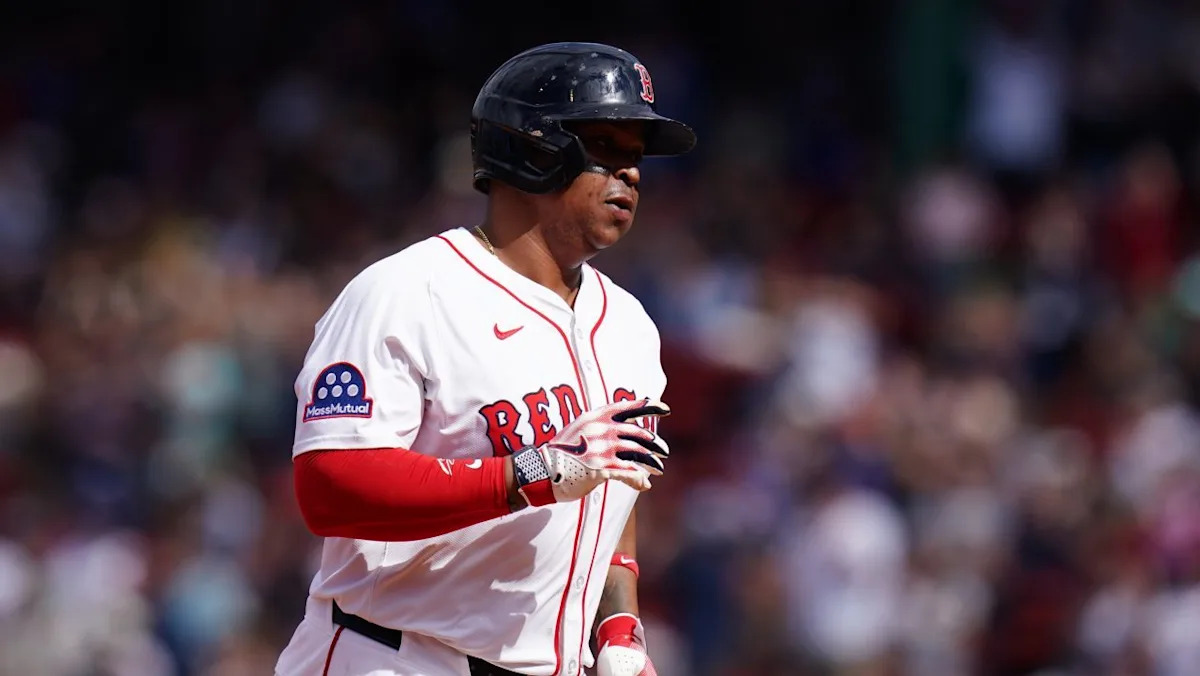
Rafael Devers has been in the spotlight this season as the designated hitter for the Boston Red Sox, showcasing his talent with a remarkable performance. However, his transition from third base has presented a series of organizational challenges, underscoring an ongoing tension between the player and the club management.
Initially, Devers was resistant to the idea of switching positions, particularly after the signing of Alex Bregman, which left him feeling sidelined. Despite his initial skepticism, he reluctantly accepted the change, though it resulted in a rough start to the 2025 season. During the early weeks, he struggled significantly, recording 0-for-19 at the plate with a staggering 15 strikeouts. However, Devers soon regained his form, reaffirming his status as one of baseball’s elite hitters.
The turning point in the season came on May 3, when first baseman Triston Casas suffered a season-ending injury. This unfortunate event prompted Devers to voice his frustrations with the front office regarding a potential shift to first base. His candid remarks about chief baseball officer Craig Breslow’s request to fill in for Casas led to a notable meeting that included Breslow, team owner John Henry, and president/CEO Sam Kennedy. This meeting highlighted the organizational strain stemming from Devers’ position change and his reluctance to further alter his role.
Following the discussions, Devers remained steadfast against the move to first base, leading the Red Sox to utilize a combination of players, including Abraham Toro and Nick Sogard, in the position while backup Romy Gonzalez also faced injury.
Recent reports shed more light on the Red Sox’s approach. According to MassLive.com’s Chris Cotillo and Sean McAdam, the decision for Breslow, rather than manager Alex Cora, to engage Devers about the position change was quite intentional. This strategy aimed to protect the long-standing, fruitful relationship between Devers and Cora. If Devers had reacted negatively, the team sought to preserve an open line of communication between Cora and their highest-paid player.
Ironically, the need for assistance at third base emerged shortly after Bregman endured a quad injury on May 23. Notably, Cora did not mention Devers in his discussions about potential third base reinforcements, further signaling a shift in the organization’s strategy.
In light of this changing dynamic, top infield prospect Marcelo Mayer was subsequently called up to the big-league club and has already seen action in six games at third base. Breslow indicated that Devers wouldn’t be asked to return to third and emphasized the need for sensitivity regarding the previous conversations surrounding his role change. He expressed a desire to balance the needs of the team with providing stability for Devers.
Despite the upheaval around him, Devers has continued to perform well as a designated hitter. As of now, he boasts an impressive .287/.409/.523 slash line, with 12 home runs and a lead of 50 RBIs in the American League. His ability to contribute to the team’s success at DH further complicates the conversation regarding his positional flexibility.
The Red Sox may have to make further adjustments, with rookie second baseman Kristian Campbell reportedly practicing at first base and expected to make his debut there soon. This shift illustrates the ongoing exploration of how best to utilize their roster while still accommodating the needs and preferences of standout players like Devers.
In conclusion, while Rafael Devers has thrived in his role as designated hitter, the ongoing discussions and management strategies surrounding his positional changes raise significant questions about communication and player management within the Boston Red Sox organization. As the season progresses, it’s clear that the Red Sox must navigate these complexities to ensure both the team’s success and Devers’ continued growth as one of baseball’s brightest stars.
Source link









